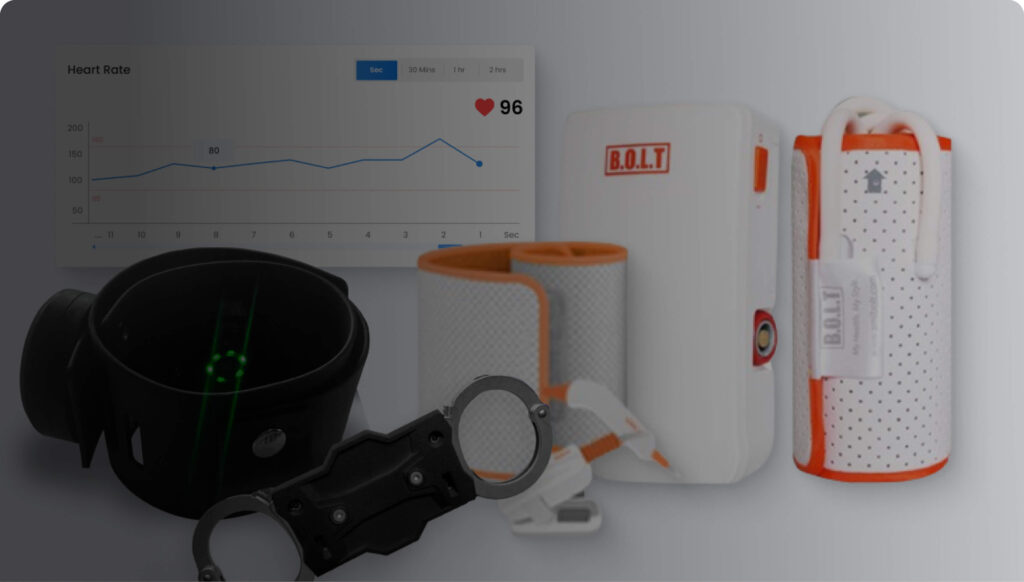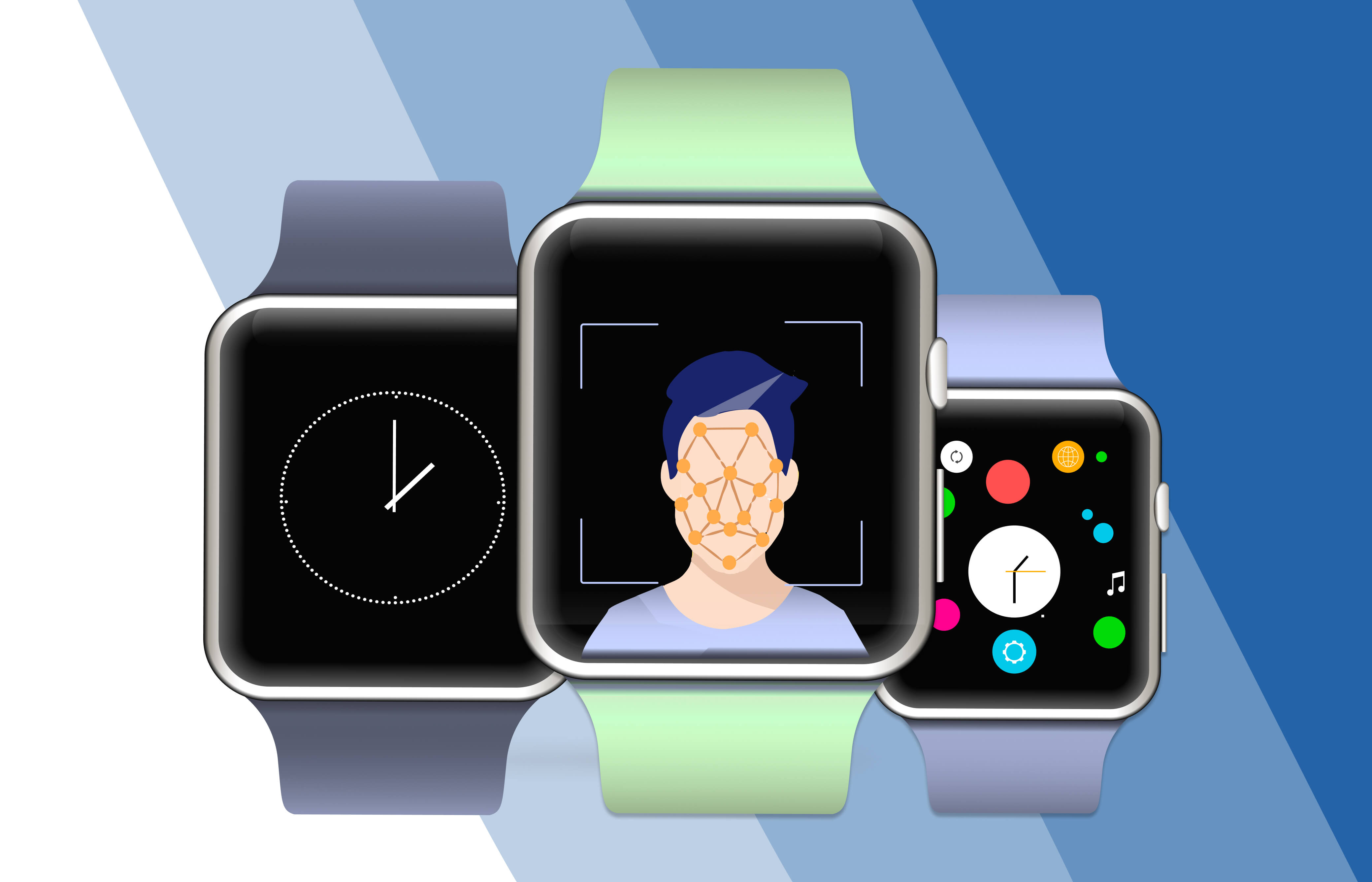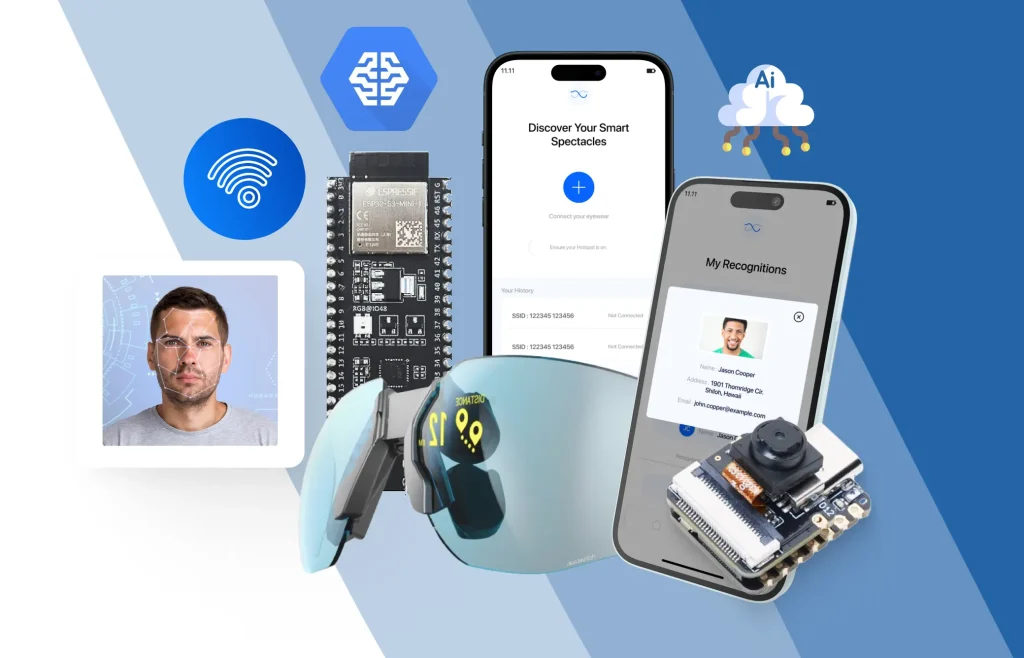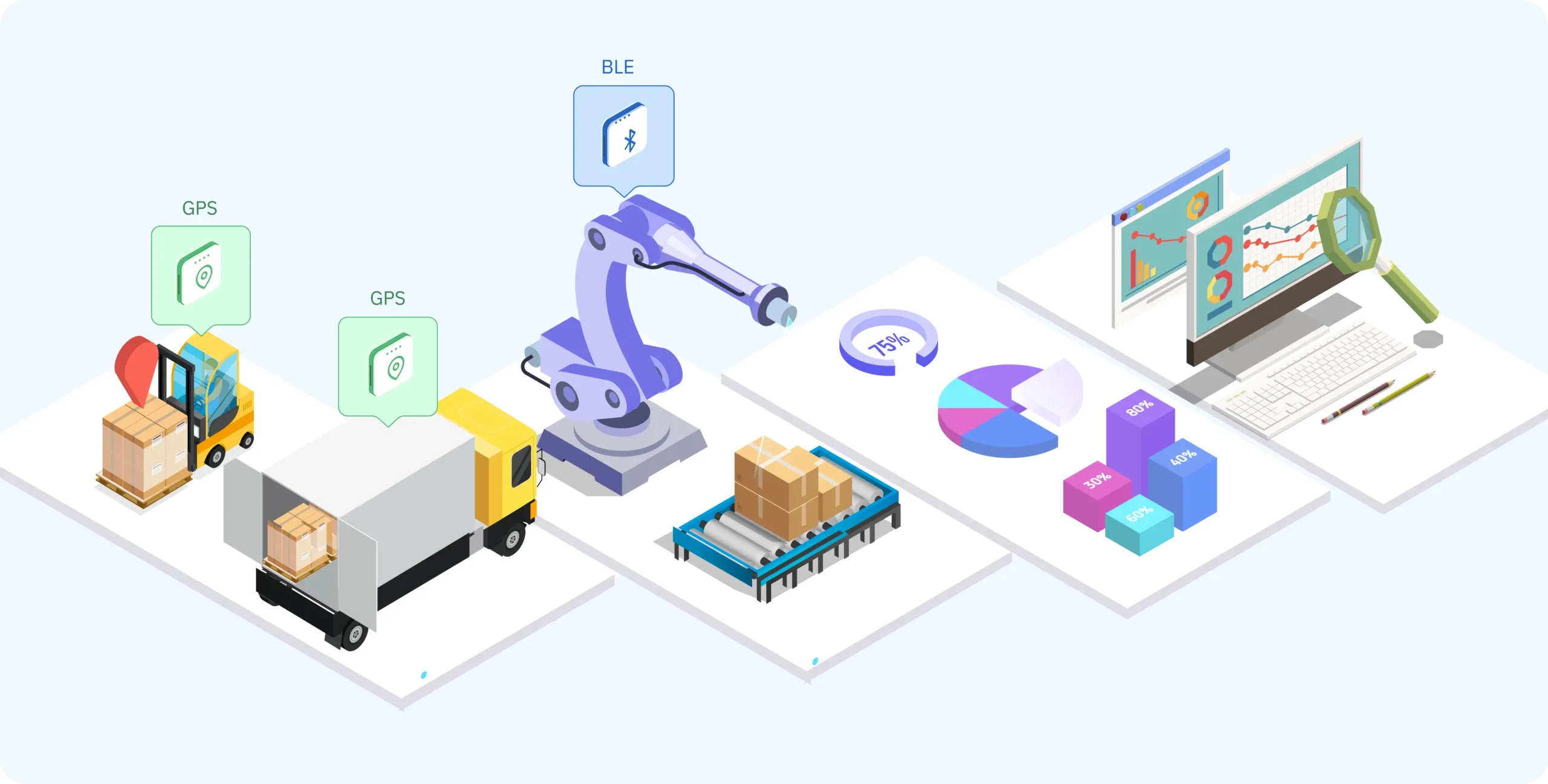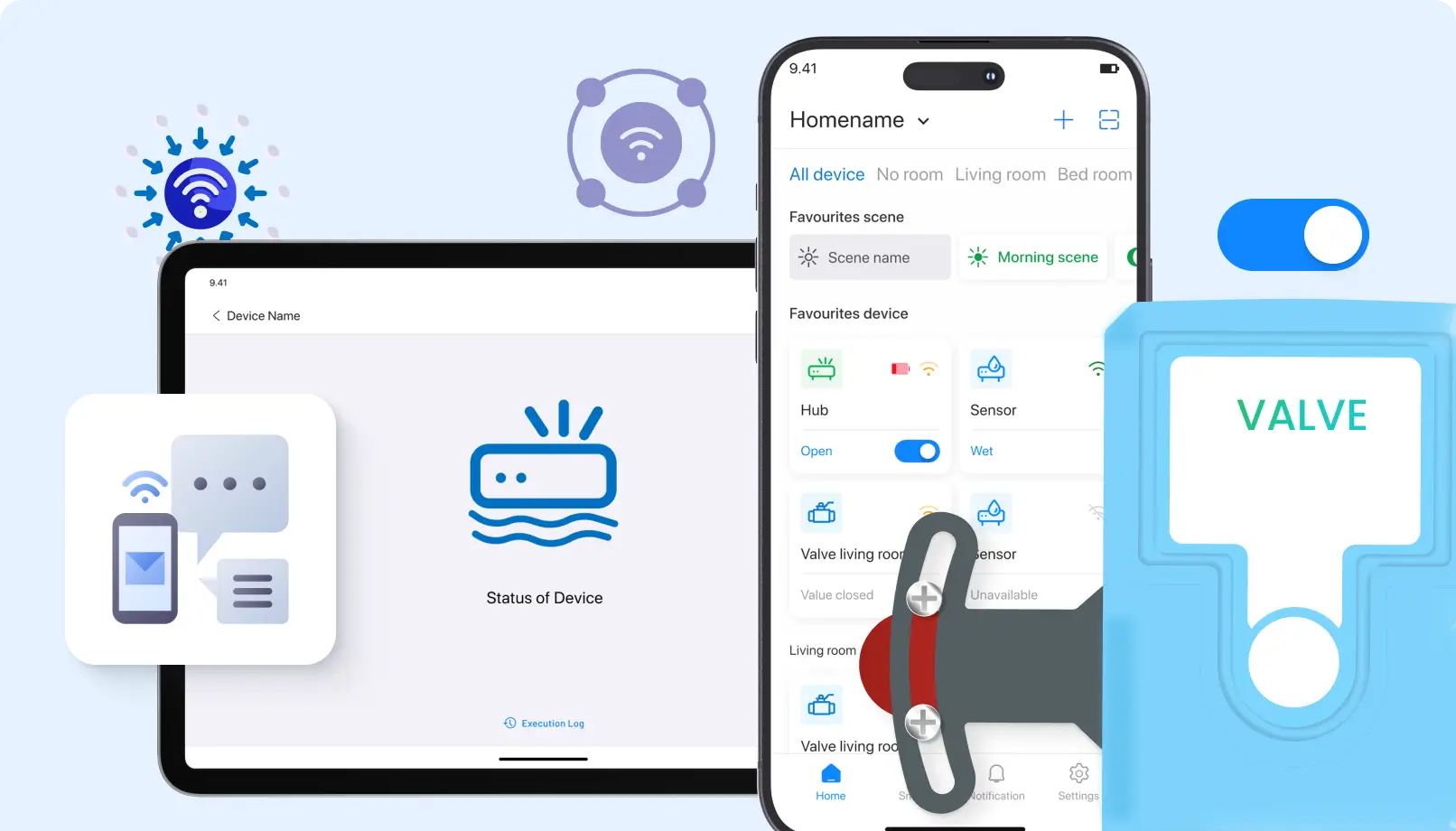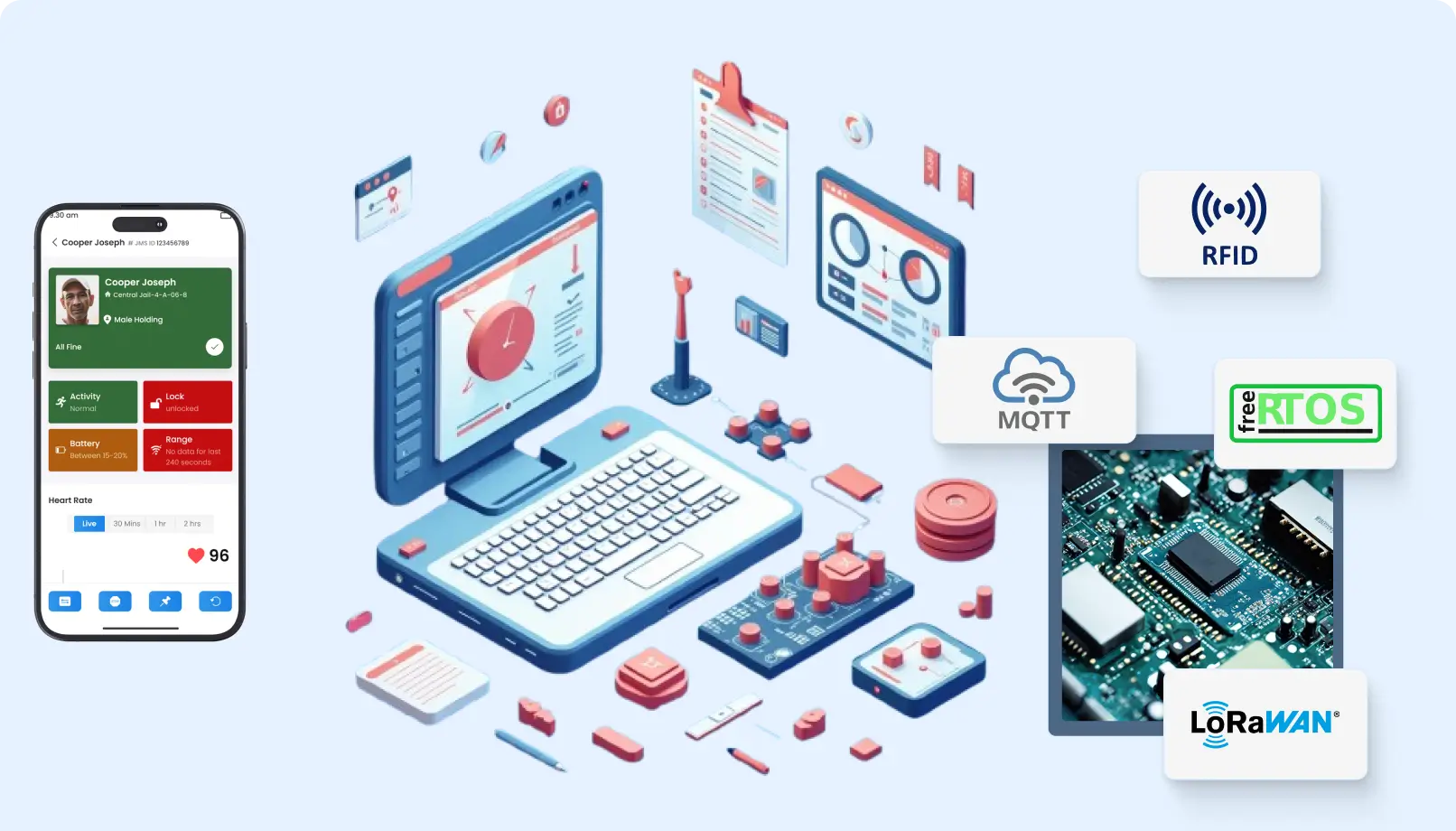The Future of IoT in the Healthcare Industry
The Internet of Things (IoT) has an impact on healthcare. It’s causing a revolution in the industry. It makes patient care better, boosts productivity, and helps manage data. IoT tech lets us watch health non-stop, share data right away, and use smart analysis to give more personal and quick medical help. From health gadgets you wear to smart medical tools, IoT in healthcare has many uses and changes things a lot. But these new ideas come with problems. We need to think about keeping data safe, protecting privacy, and following rules. This piece looks at the many sides of IoT in healthcare.
Remote Patient Monitoring
Remote patient monitoring (RPM) uses IoT devices to keep track of patients’ vital signs continuously, including heart rate, blood pressure, and glucose levels. These devices transmit real-time data and send alerts for any abnormal readings, storing this data for detailed analysis later on. This technology is especially useful for managing chronic diseases like diabetes and hypertension, monitoring recovery post-surgery, and providing care for the elderly. With RPM, healthcare providers can intervene promptly when necessary, ensuring patient safety through early detection of health issues and creating personalized care plans. The primary benefits are increased patient safety and tailored care.
Wearable Health Devices
Health gadgets you can wear, like fitness trackers and smartwatches, keep an eye on your heart rate, sleep, and how much you move around. These gizmos work hand in hand with health apps on your phone making it a breeze to check your stats and get a good look at what’s going on. Lots of folks use them to stay fit and healthy, spot heart problems , and keep tabs on sleep issues. This gives people the power to take charge of their health.
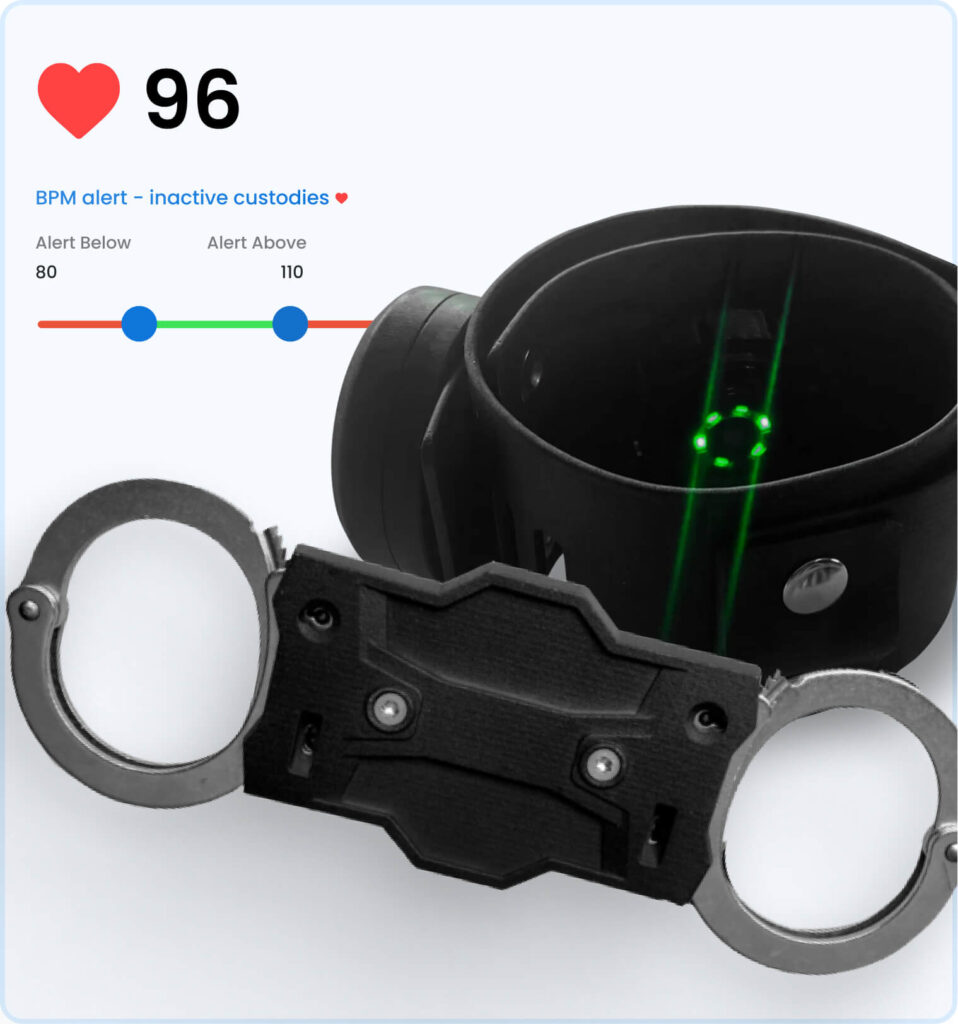
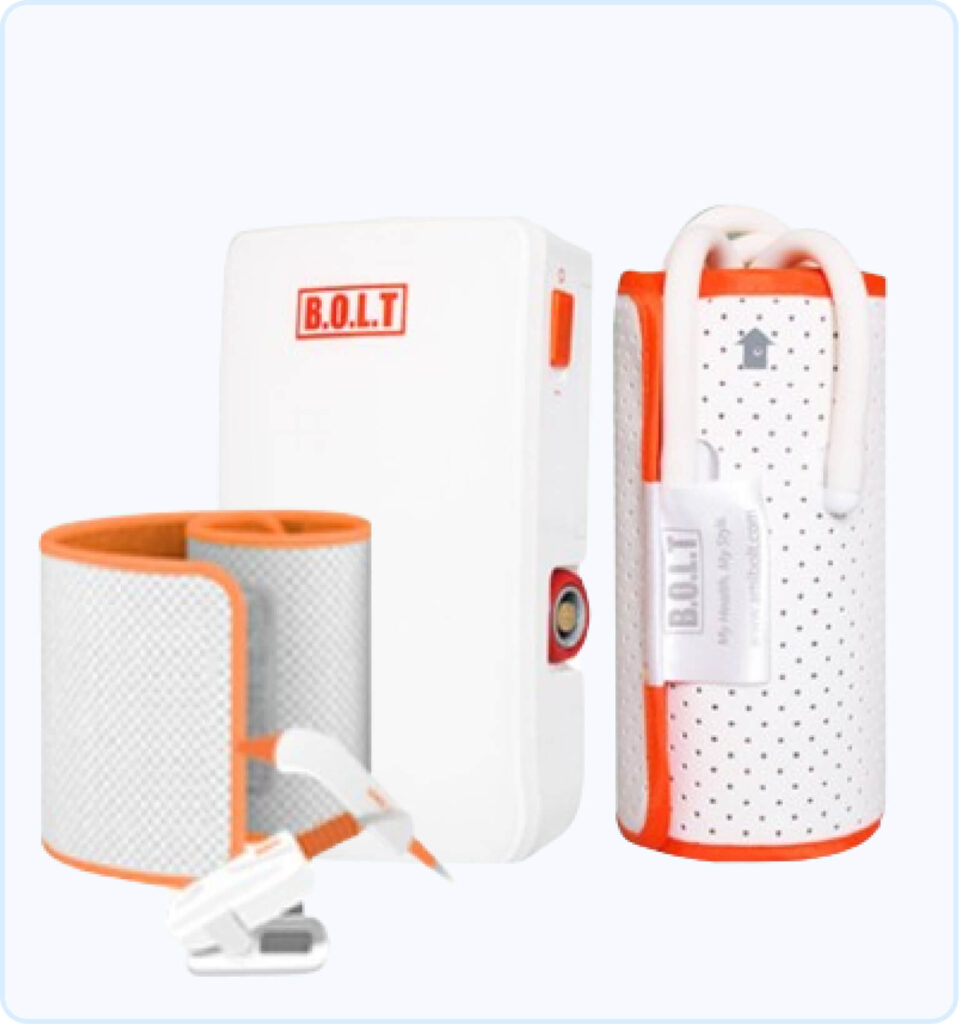
Smart Medical Equipment
Smart medical gear includes gadgets that keep an eye on things in real time, figure out what’s wrong , warn you when maintenance is needed, and work together with hospital computer systems. This makes healthcare run more . Take smart beds, for instance. They track how patients move around. Or think about connected imaging machines that give doctors instant info to make diagnoses. This kind of equipment steps up patient care and helps hospitals work better. But it’s not all smooth sailing. Setting up these systems costs a lot, you need to make sure they’re safe from hackers, and getting everything to play nice together can be a real headache. These are the big issues that need sorting out.
Inventory and Asset Management
The Internet of Things (IoT) makes it easier to manage medical supplies and equipment. It allows hospitals to track things in real time, update inventories , and predict what they’ll need. This helps keep the right amount of supplies on hand and cut down on waste. Hospitals can use IoT systems to keep an eye on how they’re using medical stuff and where it is. This makes sure they have important supplies when they need them and helps things run more . Benefits include reduced wastage, improved supply availability, and enhanced efficiency.
Enhanced Drug Management
IoT has an impact on drug management through smart pill bottles and linked dispensers. These gadgets send medication reminders and notify doctors when patients skip doses, which helps patients stick to their medication plans. This proves helpful to handle long-term health issues and care for older adults to make sure they take their meds. Yet, some hurdles remain: making sure devices work right, keeping patient info safe, and getting users to use them.
Data Analytics and Predictive Healthcare
IoT tools gather loads of health info, which experts can study to spot trends, guess future health patterns, and help catch problems and create custom treatment plans. People use data analysis to handle ongoing health problems, predict disease outbreaks, and fine-tune treatments based on patient info. The main perks include catching issues, tailored treatments, and better ways to manage diseases.
Enhanced Patient Experience
IoT makes care more personal, which leads to happier patients. Take smart hospital rooms, for instance. These rooms can change the lights, temperature, and TV options to what each patient likes. This helps patients feel more at ease during their stay and gives them care that’s just right for them. But it’s not all smooth sailing. Hospitals face some tough problems. They need to make sure the new tech works with what they already have. They also have to keep patient info safe and figure out how to pay for all of this.
Conclusion
The Internet of Things (IoT) in healthcare has a big future. It can change how we do things by making patient care better, helping hospitals run smoother, and letting us look at lots of data. But we need to be careful about keeping things safe, private, and following the rules. As tech gets better, IoT will fit into healthcare more and be used more often. This could lead to people being healthier and hospitals working better. If we can deal with these problems and use the good stuff, healthcare can benefit from IoT. This means we could end up with healthcare that’s more personal, works better, and tries to stop problems before they happen.
